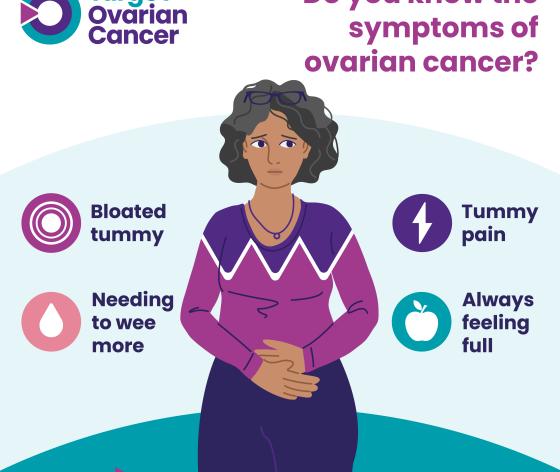This page contains statistics that you may not wish to see. If you would like to talk to someone, please contact our nurse-led Support Line.
Support for you
What is ovarian cancer?
The ovaries are two small organs, each about the size and shape of an almond. They're located low in the tummy area and form part of the female reproductive and hormonal systems.
Ovarian cancer starts from the cells in and around the ovary and fallopian tubes.




